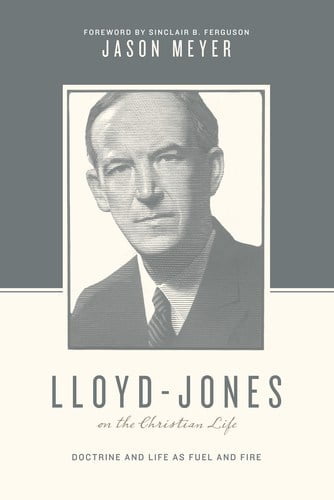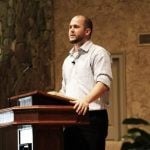⏱️ Estimated Reading Time: 4 min read
Tightrope walkers amaze me. I marvel at the ability to concentrate and balance on such a small wire while certain death awaits the slightest mishap. They must keep their center mass balanced perfectly over the wire and not lean too far in either direction. I once watched a documentary about a man who walked on a wire between the towers of the World Trade Center, and I was tense the whole time.
In his teaching on doctrine and life, Martyn Lloyd-Jones walked a tightrope that causes many to stumble. He balanced a high view of doctrine with a robust Christian life. In Lloyd-Jones on the Christian Life, Jason Meyer highlights this balance in Lloyd-Jones’s teaching: “The combustible combination of doctrinal precision and experiential power creates an explosion called the Christian life. No theologian explains the explosion better than Martyn Lloyd-Jones. The thesis of this book is that according to Lloyd-Jones, the Christian life is doctrine on fire” (21).
Doctrine and Life
Lloyd-Jones cautioned against two extremes: dry intellectualism and content-less emotionalism. Doctrine as mere intellectual exercise lacking vibrancy in one’s life was just as dangerous to Lloyd-Jones as emotionalism lacking truth.
For Lloyd-Jones, truth affects the whole person. Meyer summarizes the Doctor’s emphasis, “Doctrine should start in the head, catch fire in the heart, and create a life aflame with true obedience in the will” (22). Like many New Testament books, we are to start with doctrine before moving to application. For those who neglect doctrine, they “relegate themselves to a shallow and miserable life” (26).
Lloyd-Jones insists that our doctrine reveal itself in our life, otherwise, we’ve simply engaged in intellectual exercise. He argues, “The way to a rich subjective experience is, in the first instance, a clearer objective understanding of truth. People who neglect doctrine rarely have great experiences. The high road to experience is truth, and to concentrate on experience alone is generally to live a Christian life which is ‘bound in shallows and in miseries'” (26).
Meyer spends Part II of the book walking through Lloyd-Jones’s doctrine. He shows Lloyd-Jones’s unique ability to grapple with deep truths of God in a way a layperson can understand. The third part of the book is devoted to working out the doctrines of the Christian life. Lloyd-Jones was able to capture the practical nature of doctrine and disperse it to his people. For example, Meyer gives five ways Lloyd-Jones taught the impact of doctrine on prayer. He shows how our understanding of the atonement, the Trinity, adoption, etc. all feed our understanding and practice of prayer (140).
Lasting Influence
Meyer concludes that the influence of Lloyd-Jones continues to this day as the things he emphasized continue to shape the church. “His life was a rediscovery of expository preaching, the Puritans, and the Great Awakening, and the fire of the Holy Spirit. His rediscovery of these three things caused a reawakening of all three in our day” (220).
As one reads this book, it’s easy to see how Lloyd-Jones’s teaching is needed in our day. We need men who will exposit the word of God to their congregations in the power of the Holy Spirit. We continue to see the same extremes Lloyd-Jones saw. There are groups who downplay doctrine and turn Christianity into a sentimental, feel-good, empty religion. Thankfully, we’ve seen a correction and more emphasis on doctrine, but it has led some to the other extreme of being merely intellects with little experiential knowledge of God. As Lloyd-Jones warned, we cannot separate Word and Spirit. May we, like Lloyd-Jones, place a high priority on doctrine that is lived out in daily Christian living. This book encourages me to live that kind of balanced life.
If you’ve never studied the teaching of Lloyd-Jones, this book is a great place to start. If you’re looking for an interesting read that provides profound yet readable theology with a dash of biography mixed with practical application for the Christian life, then I’d highly recommend this work.




